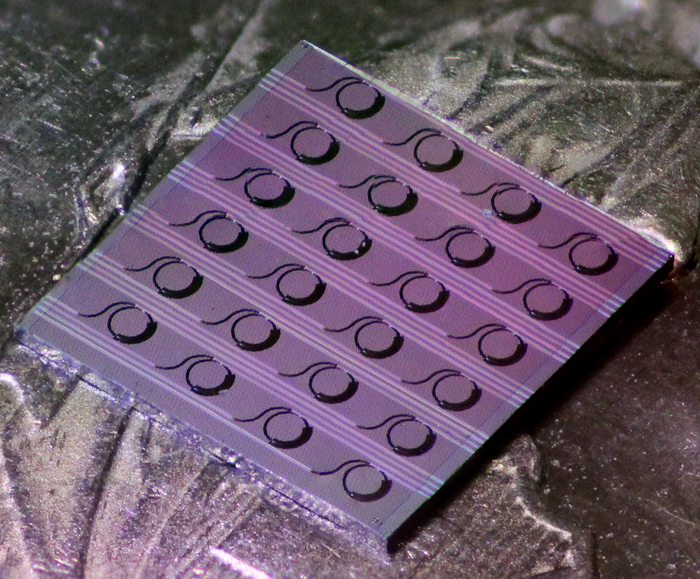A novel kind of laser has been developed by researchers at Ecole Polytechnique Fédérale de Lausanne (EPFL) and IBM. This could have a considerable effect on optical ranging technology.
 A chip developed in the study. Image Credit: Grigorii Likhachev (EPFL).
A chip developed in the study. Image Credit: Grigorii Likhachev (EPFL).
The laser has been made based on a material known as lithium niobate, frequently utilized in optical modulators, which regulates the intensity or frequency of light that is transmitted via a device.
Especially, lithium niobate is beneficial since it can tackle a lot of optical power and consists of a high “Pockels coefficient”, implying that it could alter its optical properties when an electric field has been employed on it.
This discovery was achieved by researchers by integrating lithium niobate with silicon nitride, enabling them to produce a new kind of hybrid integrated tunable laser. To perform this, the research group manufactured integrated circuits for light (“photonic integrated circuits”) based on silicon nitride at EPFL and bonded them with lithium niobate wafers at IBM.
The method produced a laser with low-frequency noise (a measure of how stable the laser’s frequency is) and concurrently with quick wavelength tuning. It is known to be a great quality for a laser that has been utilized in light detection and ranging (LiDAR) applications.
Further, they executed an optical ranging experiment where they made use of the laser to quantify distances with high accuracy.
Besides integrated lasers, the hybrid platform exhibits the ability to realize combined transceivers for telecommunications and also microwave-optical transducers for finding its use in quantum computing.
What is remarkable about the result is that the laser simultaneously provides low phase noise and fast petahertz-per-second tuning, something that has never before been achieved with such a chip-scale integrated laser.
Tobias J. Kippenberg, Professor, Ecole Polytechnique Fédérale de Lausanne
Journal Reference:
Snigirev, V., et al. (2023) Ultrafast tunable lasers using lithium niobate integrated photonics. Nature. doi.org/10.1038/s41586-023-05724-2.